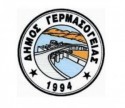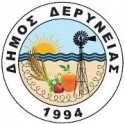Bees, butterflies and other pollinating insects are vital for healthy ecosystems and their capacity to provide us with food, clean water, medicine, materials, recreation and wellbeing. Yet, with three-quarters of the Earth’s surface altered by human influence and one million species at risk of extinction, nature conservation alone is no longer enough. We also need restoration work to bring back what we have lost. Today, on World Bee Day, the Commission’s Joint Research Centre has published a summary for policymakers of the first EU–wide ecosystem assessment. The report, developed jointly with the European Environment Agency, provides science-based advice on restoring degraded ecosystems, improving the monitoring of their health, and defining methods to assess their condition. One year on from the launch of the EU Biodiversity Strategy for 2030, the report supports efforts to put Europe’s biodiversity on a path to recovery. Executive Vice-President Frans Timmermans, for the European Green Deal, commented: “Healthy, thriving and resilient nature is at the core of healthy lifestyles, thriving economies and resilient societies. However, Europe’s ecosystems are under increasing pressure, putting us all at risk. Nature restoration will be essential to deliver win-win solutions for climate, biodiversity and human wellbeing by 2030.” Commissioner for Innovation, Research, Culture, Education and Youth, responsible for the Joint Research Centre, Mariya Gabriel said: “Science has a crucial role to play in protecting biodiversity and safeguarding precious ecosystems. This report provides valuable input to help ensure a firm evidence base for the policies needed to achieve these goals.” The assessment reveals that the condition of all Europe’s ecosystems – from forests to agricultural lands, urban areas, wetlands, rivers, lakes and seas – needs to improve significantly in order to halt and reverse biodiversity loss. It provides scientific evidence to inform the Commission’s upcoming proposal for nature restoration targets, which is due by the end of this year. Read the news release here.
(For more information: Vivian Loonela – Tel.: +32 229 66712; Johannes Bahrke – Tel.: +32 229 58615; Daniela Stoycheva – Tel.: +32 229 53664; Sinéad Meehan-Van Druten – Tel.: + 32 229 84094)
The European Commission is committed to personal data protection. Any personal data is processed in line with Regulation (EC) 2018/1725. All personal information processed by the Directorate-General for Communication / European Commission Representations is treated accordingly.





